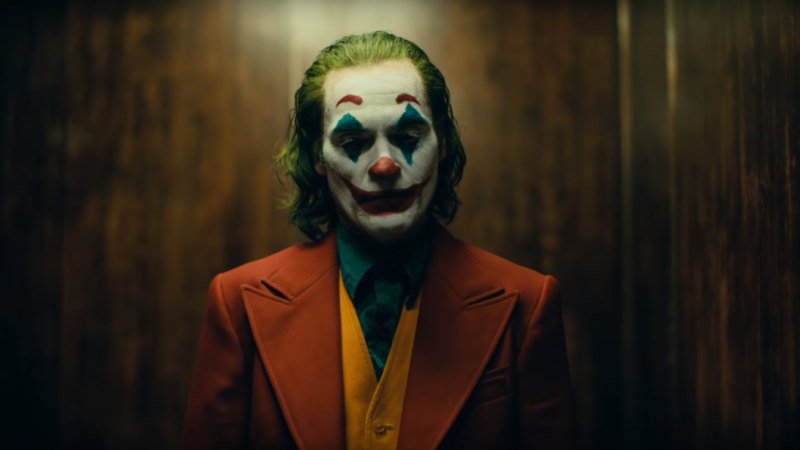Since debuting at the Venice International Film Festival earlier this month, Joker, an R-rated super villain origin story, has drawn both rave reviews and concerns over its realistic portrayal of a character sliding into a psychosis that leads him to kill.
The film's director, though, fiercely defended his film in a newly published interview, arguing that those worries are little more than the complaints of people looking for something to be angry about.
Joaquin Phoenix in Joker.
Although reviews have been largely positive, with a 75 percent "fresh" rating on Rotten Tomatoes to date, some critics have raised concerns that the movie could inspire violence from radicalised men clamouring for a moment of recognition – a description not unlike how many reviewers have characterised Arthur Fleck, the failing comic and for-hire clown who eventually becomes the Joker.
"He could easily be adopted as the patron saint of incels," Time magazine critic Stephanie Zacharek, wrote, referring to an online community of men who espouse violently misogynist views and share anti-feminist hate online. "Arthur inspires chaos and anarchy, but the movie makes it look like he's starting a revolution, where the rich are taken down, the poor get everything they need and deserve, and the sad guys who can't get a date become killer heroes."
In the newly published interview, Phillips pushes back on those critiques, arguing that he's making art, which can be controversial. The director, best known for comedies such as Old School and The Hangover trilogy and the darker War Dogs, which portrays the near-true story of two Miami stoners turned gunrunners.
"Isn't it good to have these discussions about these movies, about violence?" he said in an interview with the Wrap. "Why is that a bad thing if the movie does lead to a discourse about it?"
The director also saw Joker as a chance to make a gritty and serious film with the kind of massive Hollywood budget usually reserved for franchises. Joker, which reportedly borrows its style and substance from films like Taxi Driver and The King of Comedy, takes the superhero film formula and runs it through a dark filter.
"We didn't make the movie to push buttons," Phillips told the Wrap. "I literally described to Joaquin (Phoenix) at one point in those three months as like, 'Look at this as a way to sneak a real movie in the studio system under the guise of a comic book film.' It wasn't, 'We want to glorify this behaviour.' It was literally like, 'Let's make a real movie with a real budget and we'll call it (expletive) Joker.' That's what it was."
The movie's lead actor, Phoenix, has also been rankled at allegations that the film could be dangerous. He walked out of an interview with the Telegraph last week when a reporter asked him about criticisms of the film's tone.
"I don't think it's the filmmaker's responsibility to teach morality," Phoenix later told the Associated Press. "And if you don't know the difference between right and wrong, then there's all sorts of things that you are going to interpret in the way that you want."
Joaquin Phoenix plays the struggling comedian who winds up as Batman’s nemesis in Joker.Credit:Warner Brothers
Phillips told IGN in another interview that his movie aims to capture the human suffering behind the Joker's descent into madness. "The movie makes statements about a lack of love, childhood trauma, lack of compassion in the world," Phillips said."I think people can handle that message."
Warner Bros., meanwhile, has responded to critics by noting its advocacy for reducing gun violence.
"Gun violence in our society is a critical issue, and we extend our deepest sympathy to all victims and families impacted by these tragedies," Warner Bros. said in a statement provided to The Post. "Our company has a long history of donating to victims of violence, including Aurora, and in recent weeks, our parent company joined other business leaders to call on policymakers to enact bi-partisan legislation to address this epidemic."
The studio also disputed claims that Joker would stoke violence.
"Make no mistake: neither the fictional character Joker, nor the film, is an endorsement of real-world violence of any kind," the studio said. "It is not the intention of the film, the filmmakers or the studio to hold this character up as a hero."
The Washington Post
Source: Read Full Article


